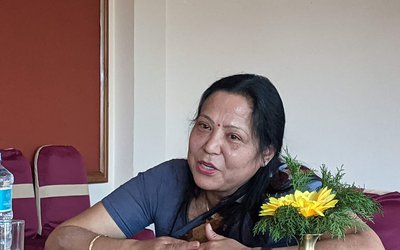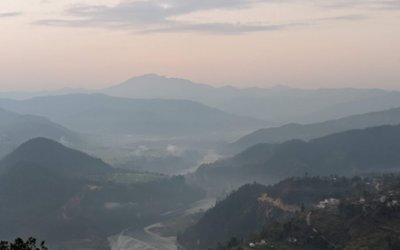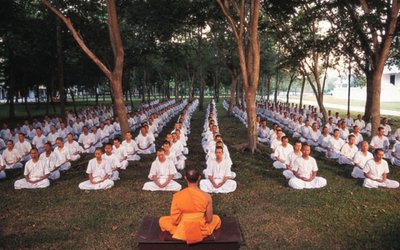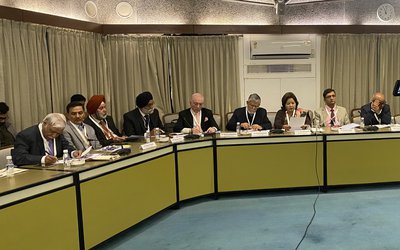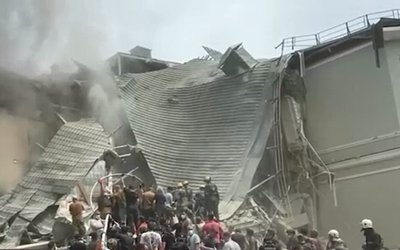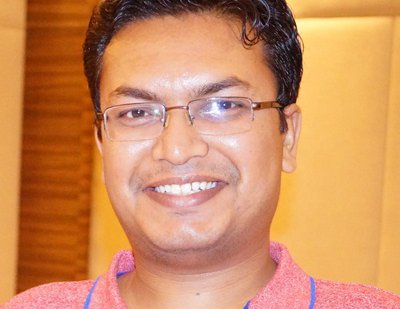
How do you see Nepal’s political state following the promulgation of new constitution?
Nepal’s transition was expected to be smooth after the promulgation of its most awaited constitution. However, there was strong reservation against it from different factions. Madhesis, Tharus, Janajatis and women of Nepal protested against it, stating that it is ‘non-inclusive’. Similarly, it was not welcomed by its most immediate neighbour – India along with few others. I personally don’t see any signs for stability in Nepal. Politics is going to be more complicated, situation more complex and transition is going to be elongated. If not dealt well, there are chances of ethnic violence and increase in demands for separate Madhesh as a nation.
As three major political parties and Madhesh based parties are yet to make agreement, what will be its consequences in future?
The major political parties and Madhesh based parties should forge consensus and resolve the crisis through an amendment of the constitution. Failing to do so will have serious implications. Madhesh based parties are both fragmented and weak, while the major political parties do not seem near a compromise because of their strength in the parliament. Hence, the resolution of this political crisis is being explored through temporary arrangements. But I do not see it as a solution to the problem. It will be just postponing the inevitable. It is in the interest of the nation that the political parties deal with the crisis at the earliest, make constitutional amendments to take everyone on board, make laws, have local elections and concentrate on development of Nepal.
How Nepal can overcome from the present political and constitutional crisis?
As mentioned earlier, the only resolution to the present crisis is by taking everyone along and the resolution lies in incorporating multiple voices; move forward by amending the constitution; and make federal laws to implement it. Else, the greatest challenge to Nepal will be to implement the present constitution.
Leaders of major political parties are claiming that the present constitution is best constitution of the world and Madhesh based and Janajatis are claiming the worst. How do you look at it?
If you recall, the 1990 constitution was also claimed to be the best constitution in the world. Therefore, it is not surprising to see the major political parties, who drafted it, claiming the present constitution as the best. I think, the present constitution is not the best, as claimed by the major political parties, nor it’s the worst as said by others. In my opinion, the present constitution is neither best nor worst. The new constitution has safeguarded republic, secularism and federalism, which was absent in the previous constitutions of Nepal. These were achieved by the people of Nepal through their long struggle – Jana Andolan first and second, Maoists movement, Madhesh movement and others. However, the constitution has failed to accommodate everyone. It reverted to some of the core demands of Madhesis and Tharus which were already agreed in the past. It failed to impress the Janajatis, women and others marginalized communities as it was not inclusive as expected. Hence, the constitution is not the worst, neither it’s the best. In order to be the best, the constitution needs to satisfy the maximum. There are few amendments required which can satisfy the maximum.
Prime Minister K.P. Sharma Oli recently visited India and China. How do you see the implications of his visit? How do you see the recent agreement signed by Nepal and China during the visit of Oli?
The visit of the Nepali Prime Minister KP Sharma Oli to India and China was much hyped as it took place after the ‘unofficial blockade’. Yet, the visits could not deliver any significant achievements. Most of the agreements with India and China were mere reiteration of the past agreements except a few minor ones. Signing of the transit facilities for Nepal through Vishakhapatnam port (India) was a new one. However it does not sound feasible as Nepal already has access to other nearby ports. Much hyped agreement with China was the feasibility study of Railway in Nepal, which has been discussed in past. However, we don’t foresee much progress taking place on this unless China takes India into confidence.
There was no change in the Indian stand on any of the issues, including the constitution of Nepal, even after the visit. India just wanted to normalize strained relations with KP Sharma Oli and persuades him to resolve the issues for peace and stability in the region. Similarly, China wanted to present itself as a benevolent neighbor who stands with Nepal at the time of need. However, China didn’t take any steps to challenge India’s predominant presence in Nepal, though Oli wanted to play one against the other.
Monarchy and Hindu religions are two main foundation of Nepal and linking thread of people’s to people relations. After removal of both, don’t you think the thread is weaken?
I do not think that Monarchy and Hindu religions were the main foundation of Nepal or a linking thread for people to people contact. India is secular and democratic republic. I think the people of both the nations are tied with cross border marriages, economic dependence, socio-cultural ties and historical linkages. In fact, the relations between the two nations strengthened after Nepal restored democracy in 1990 or became secular republic in 2006. Nevertheless, many in India criticize Monarchy for being pro-China or anti-India.
As India is first country to come out with all out support during the earthquake, how can Nepal benefit from goodwill of India in reconstruction period
India has pledged huge reconstruction assistance to Nepal for the post 2015 earthquake. It is feasible to get all kinds of assistance required for reconstruction from India, be it skilled manpower, technology or reconstruction materials from India. Nepal should grab this opportunity and work for the affected ones who have been suffering since 12 months.
- SWISS SUPPORT: Construction Of A Trekking Trail In Koshi
- Dec 19, 2024
- PM OLI'S VISIT TO CHINA: BRI Agreement
- Dec 16, 2024
- RASUWAGADHI AND SANJEN: Begin Generation
- Dec 03, 2024
- NEPAL, INDIA ELECTRICITY TRADE Nepal's Advantage
- Dec 02, 2024
- PM Oli'S VISIT TO CHINA: Nepal's Dilemma
- Dec 01, 2024






